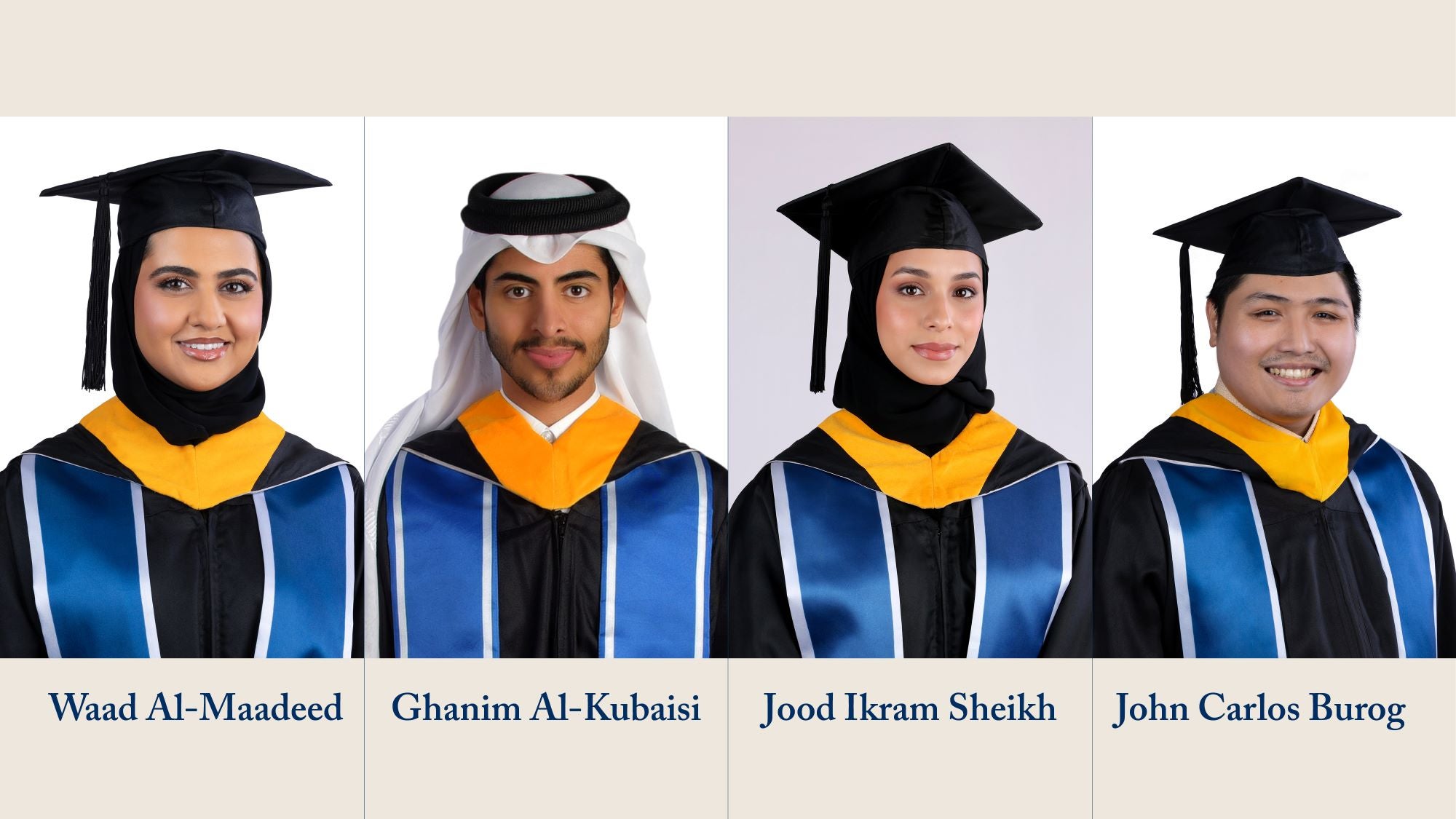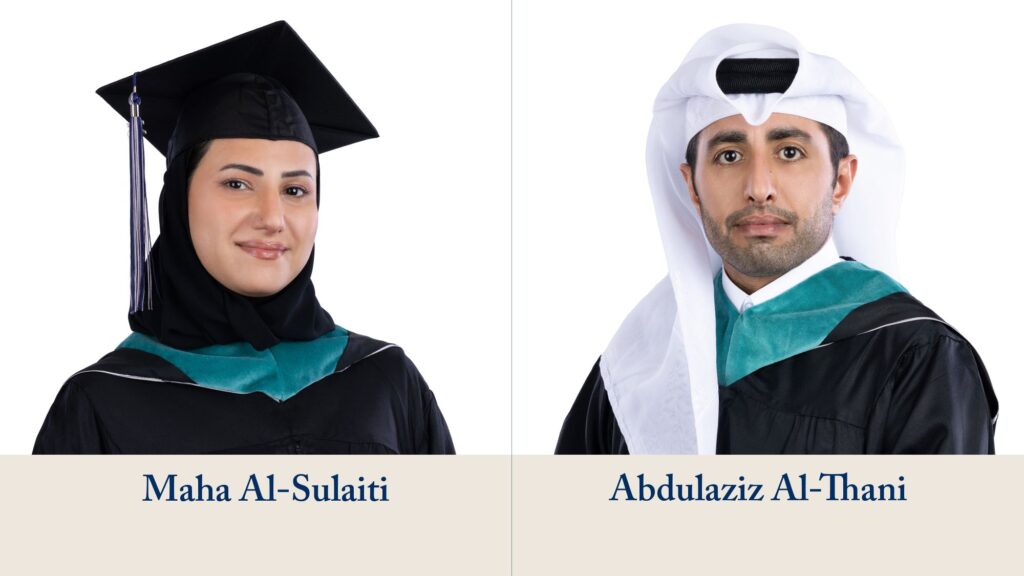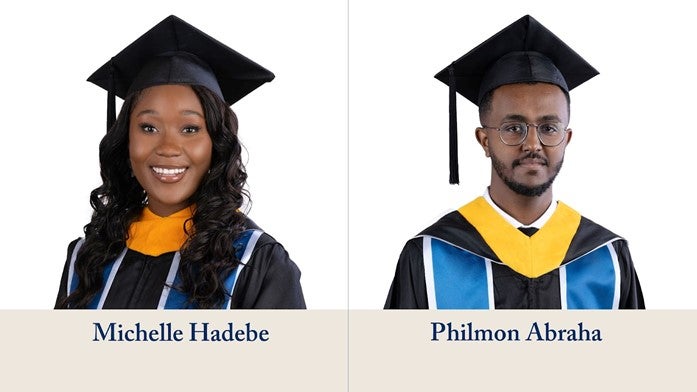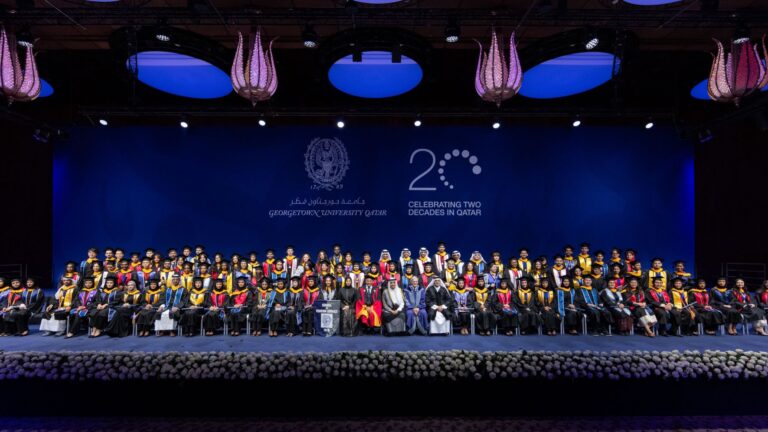Brian Wibowo Named 2025 Yenching Scholar at Peking University
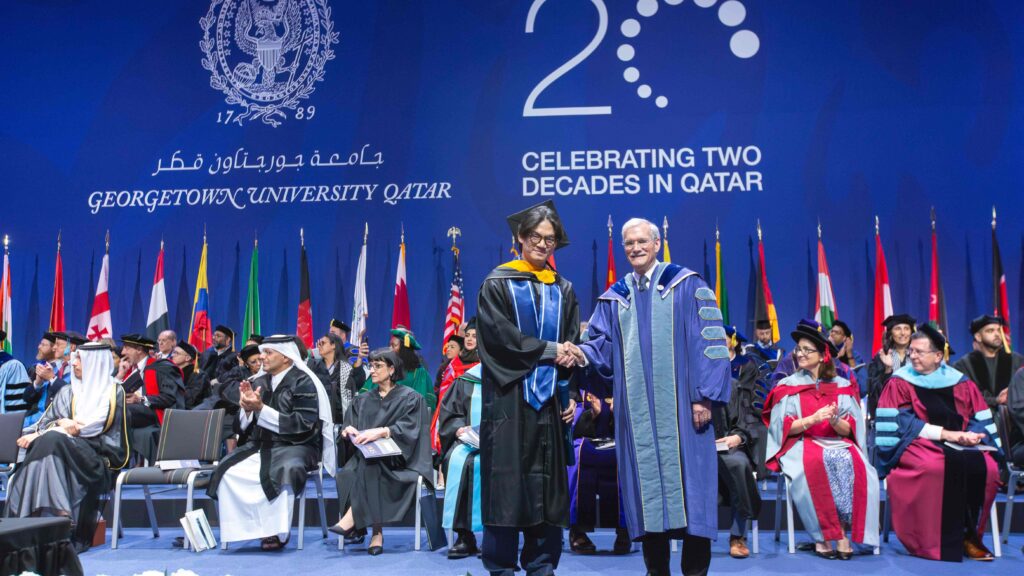
Brian Cody Wibowo (SFS’25), a graduate of Georgetown University in Qatar (GU-Q), has been selected as one of 114 scholars worldwide to join the 2025 cohort of the Yenching Academy of Peking University, one of the most competitive and renowned postgraduate programs in the world. With an acceptance rate below 3%, the program attracted thousands of applicants worldwide and enrolled students from more than 40 countries to pursue an interdisciplinary master’s degree focused on China’s changing role on the global stage.
Hailing from a small town in Sumatra, Indonesia, Brian built an academic and advocacy career at Georgetown that spanned institutional reform, regional research, and global policy dialogue. Graduating cum laude with a Bachelor of Science in Foreign Service in International Economics, Brian was known for his campus thought leadership and exceptional research focusing on diasporic governance, development policy, and Southeast Asia-China relations.
Research and global engagement
As a Kalorama Fellow through Georgetown, he conducted comparative fieldwork on Chinese clanhouses in Penang and Medan, analyzing their roles in mediating identity and authority under colonial rule. He presented this research at the 2025 Yale Undergraduate Research Conference, where he was awarded second place in humanities research. He also participated in Georgetown Global Dialogues, facilitating critical conversations on post-development, degrowth, and the future of political economy.

Brian presenting his research on Chinese diaspora governance at Yale University
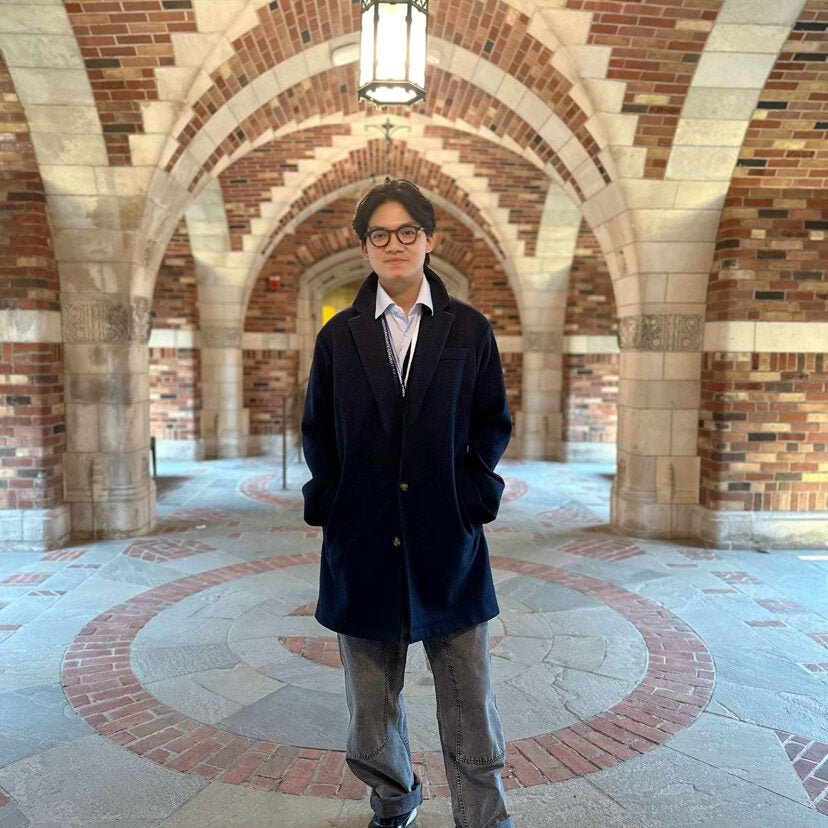
Brian at Yale University
Advancing education policy for a new era
As a member of GU-Q’s Honor Council, Brian worked closely with his peers to co-author the university’s first AI academic policy, developing ethical frameworks for student use of generative technology.
As one of two students selected to represent Georgetown as a U7+ Alliance of World Universities Fellow, at the NEXT Milan Forum, he co-developed policy recommendations on legacy admissions and international student equity, later reviewed by Group of Seven (G7) university leaders. Reflecting on the experience, he wrote:
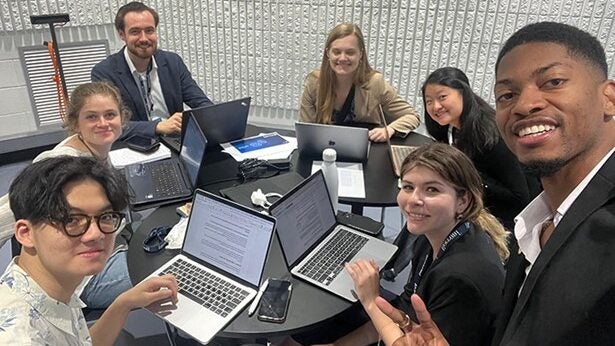
Brian, left, developing policy recommendations with other U7+Alliance students
While the challenges we face are undoubtedly complex and deeply rooted, there is an emboldening realization that progress is possible when each of us recognizes our integral role in shaping a more just, equitable, and sustainable future for all.”
Leading health, education, and human rights initiatives
Outside the university, he co-founded a grassroots initiative in Sumatra focused on food insecurity, disability inclusion, and community-based education. The initiative launched mobile health outreach to over 30 underserved villages, built food banks during the pandemic, and established scholarship pipelines for children with invisible disabilities. He later led national research and reform efforts as a Fellow of the Royal Society of Arts, Manufactures and Commerce, focused on disability policy and educational equity.
His global engagement also included participation in the Doha Debates Global Ambassador Program, where he actively engaged in sustained dialogue and co-developed policy ideas on education reform and climate justice. He later joined the World Economic Forum Global Shapers Community, where he supported migrant labor advocacy for unprotected workers in Qatar.
Furthering research on Southeast Asia-China relations
Although Brian received prestigious scholarships to attend other graduate programs, including Columbia University, Brown University, and Sciences Po Paris, he chose Yenching for its intellectual structure, regional relevance, and the opportunity to situate his work within China’s institutional and historical frameworks.
At Peking University, Brian plans to build on his past work by examining how transregional migration, diasporic institutions, and postcolonial legacies shape development trajectories in Southeast Asia. His focus will combine archival and ethnographic methods to explore how Chinese influence is embedded not only in trade or diplomacy, but in how communities structure governance, belonging, and memory.
“China isn’t just shaping Southeast Asia’s future. It’s already embedded in the infrastructures, narratives, and moral economies that define the region,” explained Brian, adding: “Studying that from within — not through headlines, but through lived experience — is a necessary step for anyone committed to understanding where we go next.”
A solid foundation for the future
As he prepares to begin his studies this fall, Brian reflected on the role Georgetown played in shaping his path.
Georgetown didn’t give me answers—it gave me the freedom to ask harder questions, the mentorship to sharpen them, and the space to pursue ideas beyond the classroom,” he said. “Even as I take this next step abroad, I know the way I think, the way I work, and the values I carry were all forged here.”
He credits the university not just for its academic resources, but for its culture of intellectual independence and public engagement. “What stays with me is that sense of urgency—of being expected to show up, think critically, and act responsibly, no matter the scale of the issue.”
